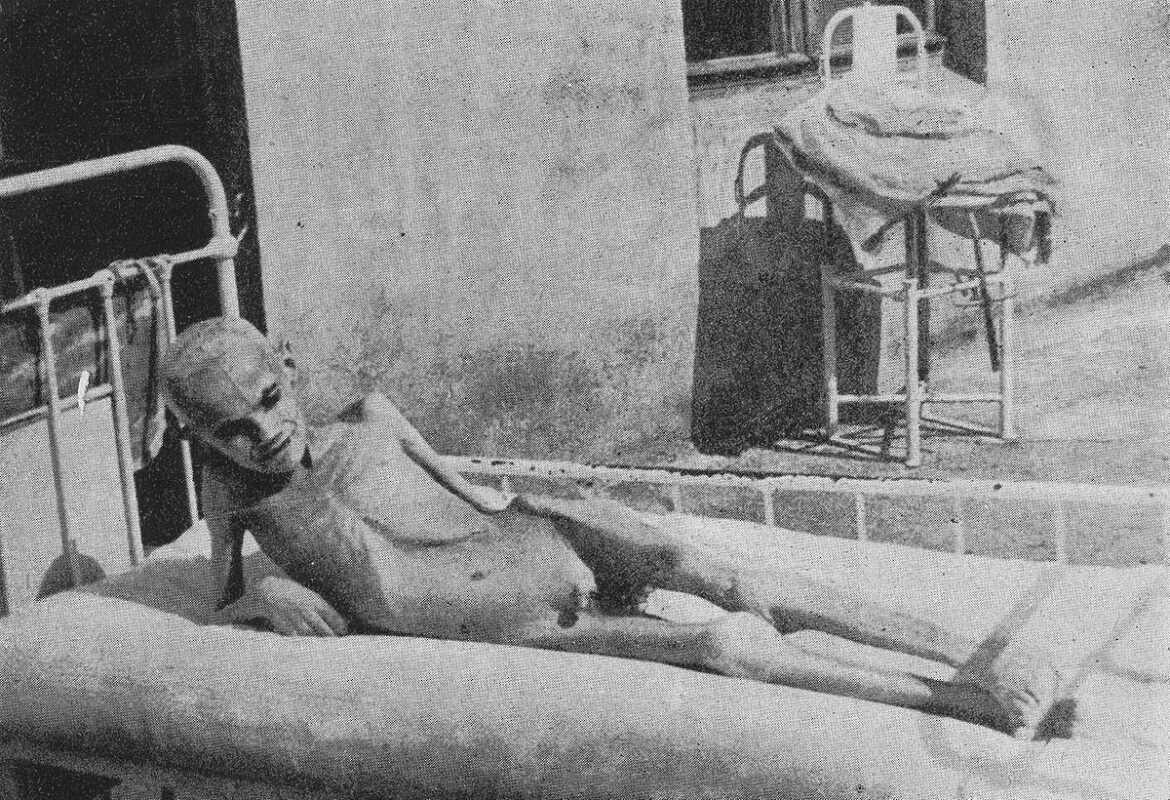Published in 1946, the study “The Hunger Disease” is considered a unique scientific work due to the fact that it was written under extremely difficult conditions in the Warsaw Ghetto. It survived the war and the Holocaust, thanks to the Polish physician Witold Eugeniusz Orłowski, who kept the manuscript at his home.
Experimental work on hunger began in February 1942. It was interrupted by the deportation action in July 1942 but continued thereafter until October of that year. Dr Israel Milejkowski was appointed head of a team specially set up for this purpose. It consisted of twenty doctors and laboratory technicians. Milejkowski was a member of the Jewish Council and chairman of the ghetto’s Department of Health and Department of Hospitality. Adam Czerniaków, the president of the Jewish Council, took patronage of the project.
The research work took place on the premises of the Czyste Hospital led by Dr Emil Apfelbaum, and in the Bersohn and Bauman Children’s Hospital. Of course, there was total conspiracy from the Germans. Autopsies, during which the condition of the organs was examined, were of crucial importance. They were carried out in the cemetery shed. The group was particularly interested in the mechanisms regulating water, sugar energy and hormones in the body. The results were discussed in seminars. In addition, they were the basis for a series of papers focusing on presenting the characteristic changes of starvation, i.e. skin, anatomical, biochemical, circulatory, morphological and ocular changes. Unfortunately, all the papers did not survive. Only six works were successfully submitted to the director of the Second Department of Internal Medicine at the University of Warsaw, Professor Witold Orłowski.
Of the six main authors, five did not survive the war, and the editor-in-chief of the publication, the aforementioned Apfelbaum died of heart failure in January 1946, just before the work was published. He was exhausted by his wartime experiences.
Whether Jewish doctors had the right to conduct experiments on starvation under such difficult conditions remains a matter of debate today. There is no clear answer to this question. What is not in doubt, however, is that the work was accepted by the scientific community and has broadened knowledge about human hunger.





